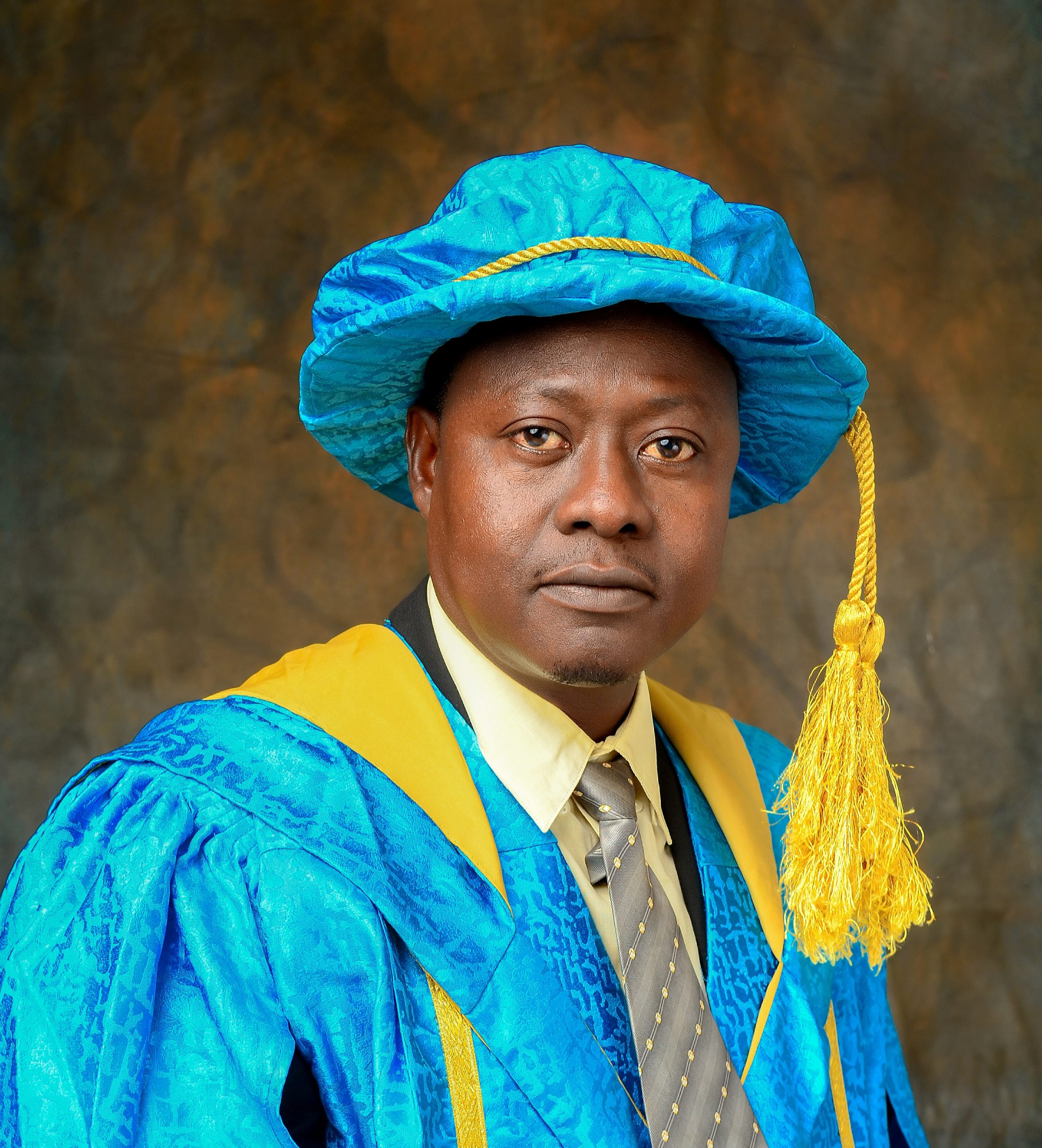PROFILE | Isyaku Yarube: The Moscow-trained medical physiologist researching on memory loss
Isyaku Yarube, the forty-eight-year-old Moscow-trained medical physiologist and academic is on a mission to find “what goes wrong when someone loses their memory (dementia), whether as a result of aging or due to one disease or another.”

In 1990, while still a teenager, young Yarube left his native Tofa community in Kano state, for Moscow, the capital of the then USSR.
Recalling that experience three decades later, the now professor of physiology at the Bayero University in Kano, says, for him, the challenges of living and studying in Russia were “to do with the winter conditions and the culture shock.” The barely 18-year-old Yarube had swapped the tropical savanna climate of Kano where daily temperature goes as high as 45 degrees in Summer for Moscow’s humid continental climate, where the temperature may plummet to as low as −20 degrees in winter.
Educational background
Yarube’s education in Russia was courtesy of a government scholarship, having won the 1990 Kano State Government Scholarship for Best Graduating Students to study Medicine in the USSR. Earlier in 1989, Yarube had emerged Best Graduating Student of Science Secondary School Kafin-Hausa in the old Kano state. Before commencing his medical degree programme, he pursued a remedial course at the Rostov Medical Institute, where he won the Distinguished Student Award at Winter Exams from the Institute’s chapter of the Nigerian Students Union.
By the time he returned to Nigeria in 1997, Yarube had successfully completed a Doctor of Medicine (MD) degree in General Medicine at the Sechenov First Moscow State Medical University (Sechenov University). Between 2005 and 2008, he pursued an MSc in Human Physiology at the Ahmadu Bello University (ABU), Zaria, followed by a PhD (Human Physiology) from the same institution in 2012 – 2016. Between 2009 and 2010, Yarube pursued a PGD (Education) from the Bayero University, Kano (BUK) – where he was in 2019 promoted to the rank of professor of physiology.
While comparing medical education in Russia with that in Nigeria, Yarube said the two “are quite different. The system over there makes learning easier and sounder. Academic contacts were fine-tuned and uninterrupted. When students were not doing well, their lecturers took the blame, until proven otherwise. Importantly, during delivery of the learning content, very little was left to the imagination of the student.
“I mean, virtually everything was illustrated/demonstrated, from physiological phenomena like diapedesis to facilities such as hyperbaric oxygen chamber, and procedures such as cardiac catheterization. When the movements of a left atrial myxoma through the cardiac circle is demonstrated/visualized on a patient using a 3-D Dopler scanner, you need no one to tell you more before you figure out the haemodynamic effects cum signs and symptoms of this tumour.”
The now professor of physiology says in Russia, they had what was referred to as a ‘lecturer on duty’, who would stay behind with the students in the department till late evenings – to attend to students who might have difficulty appreciating the study material during their independent study sessions. “Coming back here to study, things were a bit more difficult because of the prevailing circumstances – not so favourable academic environment, inadequate facilities for serious research endeavours, among others. In fact, the ‘returned resident syndrome’ I experienced didn’t help matters,” recalls Yarube.
As a medical physiologist, Yarube’s areas of specialization and research interest include Neurophysiology and Pathophysiology; mechanisms of memory/cognitive function in health and disease as well as the role of insulin, oxidative stress, nitric oxide and cell signalling as mechanisms in memory physiology and pathophysiology – his current research interest.
Yarube says he had right from the start of his medical education in Moscow always loved physiology, linking his passion for physiology to his love for physics back in his secondary school days at Kafin-Hausa. “There is a lot of physics/biophysics in physiology,” he said. “On coming back to Nigeria, I discovered that there was a dearth of personnel to take up a carrier as physician-scientists (including physiologists). This was another motivating factor which added fuel to the burning fire. Of course I have considered other carrier paths for myself, as plan B.”
Additionally, Yarube said he took inspiration from eminent Russian physiologists such as Ivan Pavlov, a physician-scientist who discovered classical conditioning and modern behavioural therapy cum winner of Nobel Price in Physiology or Medicine 1904. Another physician-scientist that inspired Yarube was Ivan Sechenov, who is regarded as the father of Russian physiology and known for his pioneering works in electrophysiology, neurophysiology, especially higher functions of the nervous system including the discovering of cerebral inhibition of spinal reflexes.
Yarube says his research interest as a human physiologist is essentially cognition which he defines as “a process of consciously using one’s brain, that is, how we use our brain to memorise and recall, think, communicate using language, focus attention, execute skilled tasks, display appropriate social behaviour, etc. At the same time, I also investigate what goes wrong when someone loses their memory (dementia), whether as a result of aging or due to one disease or another. For example, diabetes and stroke, or even old age can cause someone to lose their memory and other cognitive abilities.”
When asked to explain the major factors causing dementia and memory loss, Yarube says, “a number of conditions can lead to memory loss. The most common cause worldwide is Alzheimer’s disease. However, more locally important conditions include stroke, diabetes, HIV infection, vitamin B12 deficiency and depression. In fact, the normal ageing process can also lead to memory loss, usually in persons aged older than 65 years.
“The problem of memory loss is a serious one in Nigeria and Africa, just like it is worldwide. This is largely due to the widespread occurrence of the diseases that lead to the condition in our environment. However, the true state of things regarding the epidemiology of memory loss in Nigeria is not known due to poor state of facilities and inadequate personnel to diagnose the condition, as well as dearth of good research studies in the area.”
Carrier progression
Until his appointment as Professor of Physiology at Bayero, Yarube had worked as a lecturer and researcher in the same institution since 2003. He was associate professor (2016 – 2019); Senior Lecturer (2011 – 2016); Lecturer I (2008 – 2011) and Lecturer II (2003 – 2008). Prior to joining the academia, he had worked as a Medical Officer at the Federal Medical Centre, Azare (2002 – 2003) and before then served under the mandatory one-year NYSC scheme at Police Clinic, Jos, 2001 – 2002.
Between 1999 and 2001, Yarube did his Housemanship at the Murtala Muhammed Specialist Hospital (MMSH) and the Aminu Kano Teaching Hospital (AKTH), all in Kano, while between January and May 1999, he successfully sat for the Medical and Dental Council of Nigeria (MDCN) assessment examination at the University of Nigeria Teaching Hospital, Enugu. Between September and December, 1998, he was on a Clinical Attachment at MMSH.
From 2003 to date, Yarube has taught students at the undergraduate and postgraduate levels across different programmes namely, MBBS, Physiotherapy, Nursing, Medical Laboratory Science, Radiography, Optometry, Pharmacy, MSc Human Physiology, PhD Human Physiology. Within this period, he had successfully supervised scores of theses and dissertations including eight master’s dissertations, in addition to three ongoing PhD theses and six ongoing master’s dissertations.
Yarube has in the course of his teaching and research carrier worked as internal and external examiner at various universities namely, BUK, ABU, University of Maiduguri; Gombe State University, University of Jos, amongst others. Beyond teaching and research, he had in 2016 –2018 served as Head, Department of Physiology and in 2014 – 2016, Deputy Dean, Faculty of Basic Medical Sciences and in 2012 – 2014, Sub-Dean (Pre-Clinical), Faculty of Medicine – all at BUK. Between 2016 and 2018, he was a member of the University Senate and University Central Appointments and Promotions Committee, among others.
As well as having his papers published in scores of peer-reviewed research and academic journals, Prof Yarube has participated and presented many research and academic papers at varied local and international conferences including the Joint 14th Conference of the Society of Neuroscientists of Africa (SONA) and the 17th Conference of the Neuroscience Society of Nigeria (NSN), held Lagos in March, 2019.
Others were Europhysiology 2018 (the joint meeting of the UK Physiological Society, Scandinavian Physiological Society, Deutsche Physiologische Gesellschaft and the Federation of European Physological Societies) held at London, in September, 2018 as well as the 3rd Biennial Conference of Transplant Association of Nigeria cum 1st International Conference of College of Health Sciences, Bayero University, Kano held at Kano in August, 2017.
Yarube also attended the 7th International Congress of the African Association of Physiological Sciences and 36th Scientific Conference of the Physiological Society of Nigeria, held at Lagos (September, 2016); the Joint Meeting of the American Physiological Society and The UK Physiological Society, held at Dublin, Ireland (July, 2016) as well as Early Carrier Physiologists Symposium held at the Royal College of Surgeons in Ireland, Dublin also in 2016.
Yarube enjoys the membership of several local and international learned societies and associations, namely the Nigerian Medical Association (NMA); Physiological Society of Nigeria (PSN); Association of Specialist Medical Doctors in Academics (ASMeDA); and Neuroscience Society of Nigeria (NSN). Others are the Physiological Society (UK); the African Association of Physiological Sciences (AAPS); Society of Neuroscientists of Africa (SONA); International Brain Research Organization (IBRO).
Adam Alqali and Isyaku Yarube are fellows of the African Science Literacy Network (ASLN). This report was supported by the ASLN.















